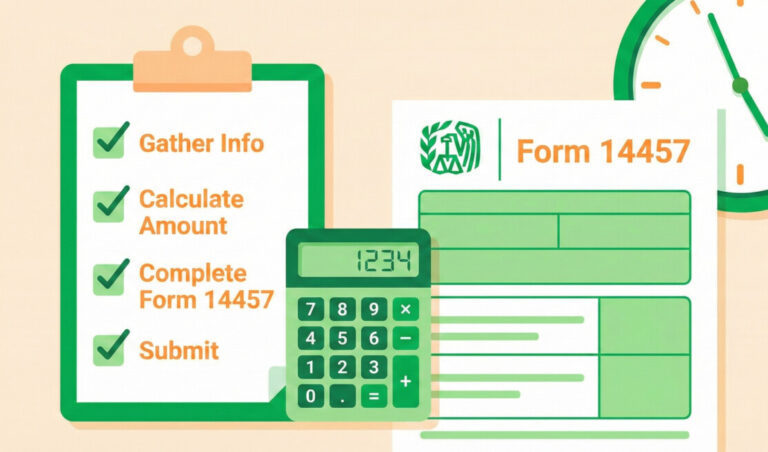The IRS Gets Smarter: Rise of the AI Auditor & How to Prepare for 2025 IRS AI Audit Risks
The IRS Gets Smarter: Rise of the AI Auditor & How to Prepare for 2025 IRS AI Audit Risks
The U.S. tax landscape in 2025 is shifting more dynamically than ever before. A particularly noteworthy change is the evolution of the Internal Revenue Service (IRS) audit process. Moving beyond simply increasing its workforce, the IRS is now armed with a powerful new weapon: Artificial Intelligence (AI), enabling it to scrutinize taxpayers with unprecedented precision. For individuals and businesses, this signals a new era of ‘tax audit risk.’
Today, join SW ACCOUNTING & CONSULTING CORP as we take a deep dive into everything you need to know about the IRS AI audit and explore concrete strategies to protect your assets amidst this new wave of change.
Why Did the IRS Deploy ‘AI Auditors’?
The IRS’s aggressive adoption of AI technology for tax audits is driven by a clear objective. Funding from the Inflation Reduction Act (IRA) has provided the momentum for the IRS to adopt cutting-edge technology and sharpen its focus on closing the ‘Tax Gap,’ especially concerning high-income earners and complex business structures.
The greatest strength of an AI auditor is its ability to analyze vast amounts of data. AI can compare and analyze countless transactions, income sources, and deduction items in seconds—a task physically impossible for human auditors. This means it can identify anomalous patterns and discrepancies that might have been missed in the past, including sophisticated tax evasion schemes. This is a key factor in maximizing the IRS’s audit efficiency.

Who is the AI Auditor Targeting in 2025?
The IRS has stated it will use AI to intensify audits on specific taxpayer groups. If you fall into any of the categories below, more meticulous tax preparation is essential in 2025.
- High-Income Individual Taxpayers: Individuals reporting an annual income of $400,000 or more are a top-priority target group for an IRS AI audit.
- Self-Employed & Gig Workers (Schedule C Filers): Self-employed individuals and gig economy workers, whose income and expense reporting is relatively complex, are a primary focus for AI analysis.
- Taxpayers Claiming Disproportionately Large Deductions: AI can easily flag cases where deductions claimed are unusually high relative to the filer’s income level.
- Claimants of Refundable Credits: Scrutiny will be tightened on refundable tax credits that have historically had high error rates, such as the Earned Income Tax Credit (EITC).
- Cryptocurrency Traders and Foreign Asset Holders: The IRS is increasing its surveillance of cryptocurrency transactions and foreign financial assets, and AI is being used to track unusual flows in these related dealings.
The Two Sides of AI Audits: Efficiency vs. Fairness Concerns
While strengthening tax audits through AI has the clear benefit of improving revenue collection efficiency, it also raises several valid concerns. The most significant debate revolves around the issue of ‘algorithmic fairness.’
The potential for an AI audit model to be biased against certain groups, a lack of transparency in the selection process, and the risk of ‘false positives’—where AI incorrectly flags a compliant return—can place an undue temporal and financial burden on honest taxpayers. If a taxpayer believes they have been unfairly targeted by AI, they and their tax representatives have the right to demand clear clarification and avenues for recourse. Resolving these technical and ethical challenges will be a critical task for the IRS.
5 Key Strategies to Protect Your Business in the Age of the AI Audit
Minimizing risk and ensuring stable business operations in this evolving IRS audit environment requires a more systematic approach. Be sure to remember and implement these five key strategies:
- Accurate Reporting of All Income: This is the most fundamental and crucial principle. Always double-check that the amounts on your tax return match all third-party-issued income documents, such as W-2s and 1099s.
- Claim Only Substantiated Deductions and Credits: You must have complete documentation—receipts, contracts, invoices—ready to back up every expense and credit you claim. ‘Rough estimates’ are the first red flags an AI audit will catch.
- Systematic Record-Keeping and Retention: Make it a habit to organize all financial records (receipts, bank statements, mileage logs, etc.) systematically and store them securely for at least three years. Using a cloud storage service is an excellent practice. (Internal Link Suggestion: Link to a blog post on ‘The Ultimate Guide to Record-Keeping for the Self-Employed’)
- Minimize Calculation Errors: Even minor mathematical mistakes can provide a reason for suspicion for an AI system. It is wise to use reliable tax software or have a professional review your return to prevent errors.
- Utilize E-filing: Electronic filing significantly reduces the rate of processing errors compared to paper filing and is processed much faster by the IRS.
Conclusion: The AI Audit Is Not to Be Feared, but to Be Managed
In 2025, the deployment of IRS AI auditors is no longer a distant future prospect; it is our current reality. However, this should not be a source of fear. Instead, it should serve as a catalyst, reminding us of the importance of more thorough and systematic tax management.
No matter how advanced AI becomes, it cannot beat an honest return based on accurate records and clear documentation. The criteria and appeal process for an AI-driven audit may require a different, more specialized approach than traditional audits. This complex, data-driven new audit environment means the role of a skilled tax professional has become more critical than ever.
Do You Need Expert Help?
At SW ACCOUNTING & CONSULTING CORP, we continuously analyze the evolving audit trends of the IRS and provide our clients with optimal solutions to effectively prepare for AI audit risks. In the age of the AI audit, don’t face the uncertainty alone. Contact our team of experts for a consultation today.








